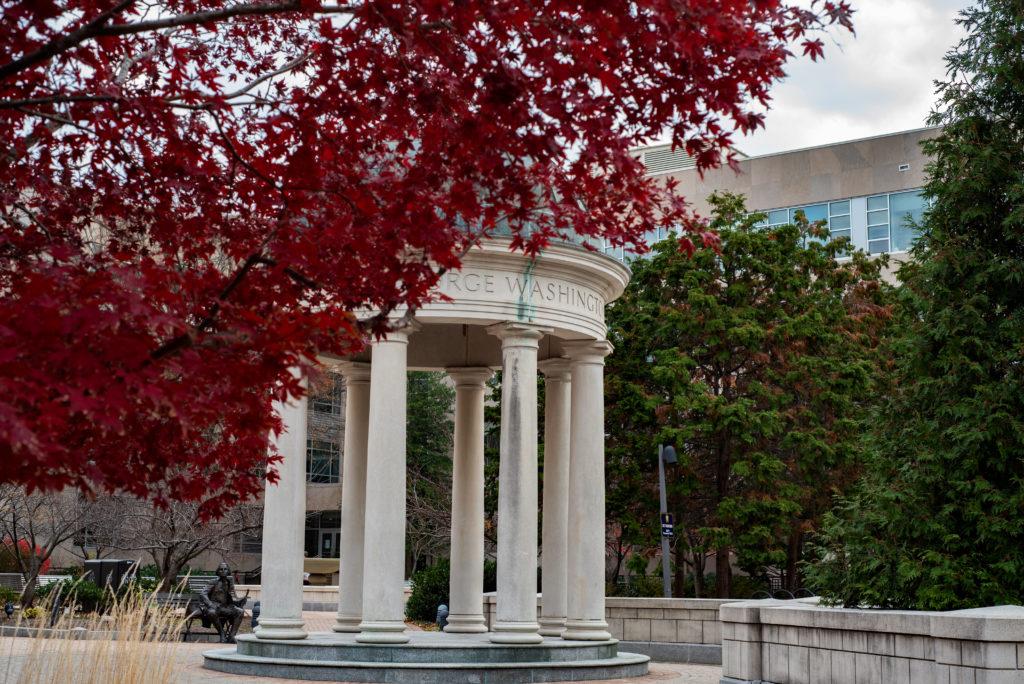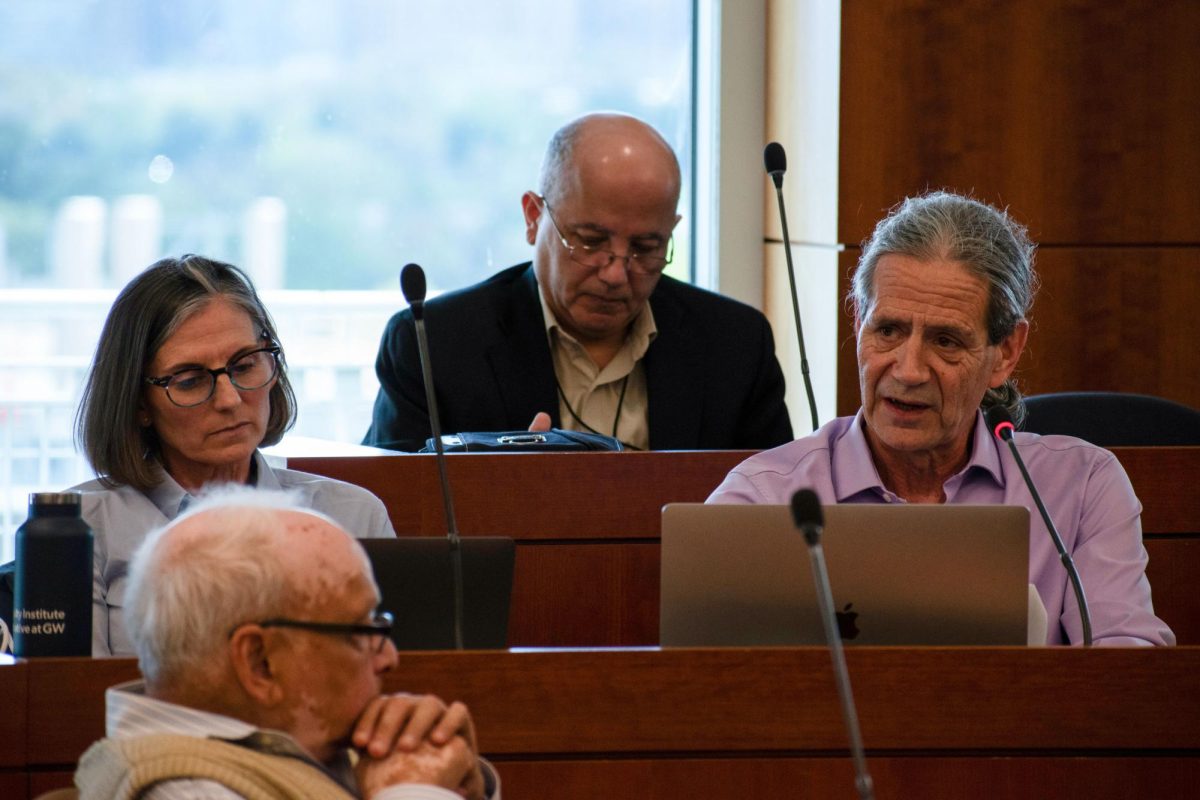Updated: Dec. 6, 2021 at 3:21 p.m.
Officials distributed grants of up to about $3,000 to every student who applied for aid last month from the third round of pandemic-era federal stimulus funding GW received.
Officials said they distributed the more than $12 million in student aid received under the American Rescue Plan that President Joe Biden signed in March to more than 10,000 student applicants. In interviews, more than 20 students who received the grants, which ranged from $530 to $2,850, said the money helped them offset the financial impact of the pandemic.
GW received $9.1 million from the first round of stimulus funding through the Coronavirus Aid, Relief and Economic Security Act in May 2020, distributing the entire package to students in need of additional aid. Officials split the second round of funding – totaling roughly $14 million from the Coronavirus Response and Relief Supplemental Appropriations Act of 2021– between student aid and institutional costs last December, following suit with the third stimulus round.
University spokesperson Crystal Nosal said any currently enrolled students or those who were enrolled at GW on or after March 13, 2020 were eligible to receive the funding. She said all eligible current and former students who applied for funding received aid around one week after the Nov. 5 application deadline, and officials determined grant award amounts based on the number of applications they received and the need each applicant demonstrated.
“We realize that many students have been financially impacted by the ongoing pandemic,” Nosal said in an email. “We hope that this grant helps to provide additional relief to those students who applied for and received a grant.”
Experts said in October that GW’s decision to direct all money from the first round of funding to students and split the other two rounds of funding between students and institutional costs was in line with other higher education institutions in the United States.
Kyle Anderson, a junior studying political science, said he has received grants from HEERF in the past as a Pell Grant student, who must show exceptional financial need based on their FAFSA. He said he received about $2,500 in HEERF funding last month, which exceeded his first grant by more than $600 and his second by more than $1,700.
Officials said they would prioritize distributing packages to Pell Grant students in this third round of funding. Anderson said he noticed the application for the third round of stimulus weighed financial need more than the first two.
Anderson, who works two jobs to pay tuition, said his finances are “very tight,” and he will use the stimulus to fund costs associated with his photography minor.
“One of those jobs has me waking up between 5 and 6 a.m. every morning and working until 8 to 8:30,” he said. “The other is freeform, and I have a set of work that I can chip away at any time. Either way, it’s a really big time investment and has made my time at GW fairly strenuous.”
Joey Zorn, a freshman majoring neuroscience, said he received more than $1,000 in HEERF funding. He said although he didn’t receive as much from the grant as he would have liked, he recognizes that GW received a limited amount of money from the American Rescue Plan.
“I don’t feel like it’s GW’s fault, to be completely honest,” he said. “They got a specific amount of money, and they had so many students that were eligible. So they had to divide it evenly among all of these students based on the criteria.”
Grace Rollins, a sophomore majoring in environmental studies who applied for and received the funding, said officials should have sent out multiple emails to remind students of the opportunity.
“If you were eligible for it, you got an email,” she said. “But if you missed that email, you were done.”
Rollins said she received $2,145 through the HEERF funding. She said although the funding helped support her family after her mother was laid off during the pandemic, it was not enough to fully address the financial impact of losing one source of income in her family.
“Every little bit helps, but with my mom losing her job, our financial needs increased quite a bit in a way we weren’t used to,” Rollins said in an email. “And with me starting college during the pandemic, a lot of money was needed in order to offset that stress.”
Lexi Plaisted, a freshman studying international affairs, said she received about $800 in funding, saying she was “surprised” by the total grant.
“I honestly did not think I would get anything because I’m sure other people have been affected much more than I have, but I thought that it was just worth a shot so I went ahead,” she said.
Plaisted said the application form was easy to fill out and only took a few minutes to complete. She said the money she received will go directly toward her housing and tuition balance for the spring semester.
“I think they did a really good job handling the situation,” she said.
This post has been updated to correct the following:
The Hatchet incorrectly reported that nearly 10,000 students received HEERF grants. More than 10,000 students received the funding. We regret this error.








